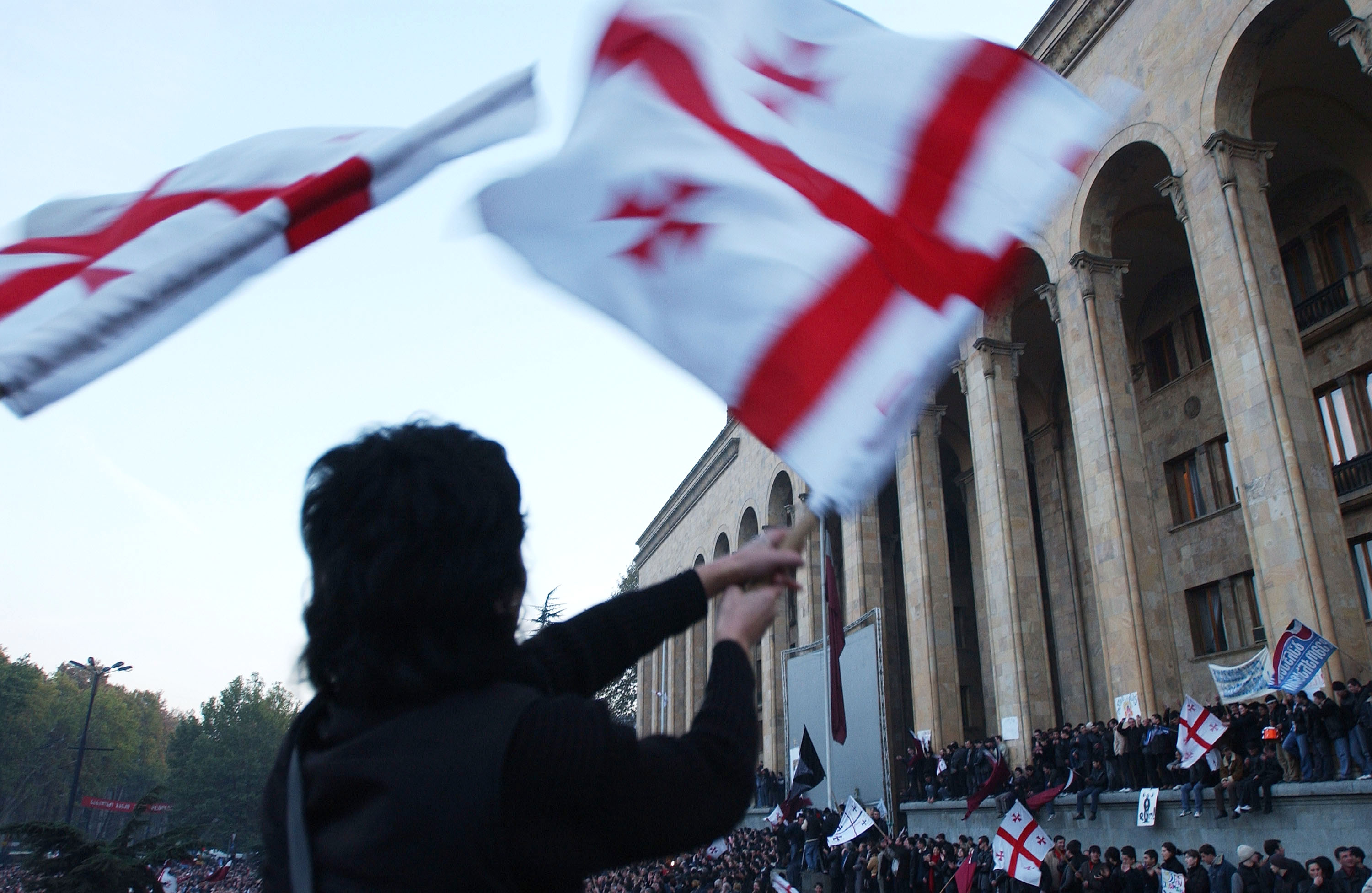Russia responded to the 21st century “color revolutions” calling for freedom and democracy in Georgia and Ukraine by invading both Black Sea countries. Those revolutions and invasions have had transformative effects on the social and political fabric of Ukraine and Georgia. Thus, the perspectives of today’s youth on wars and political upheaval will have ample impact on their countries’ future. This panel discussion will bring together two Frontier Europe Initiative 2022 fellows to speak on these topics. Specifically, the fellows will present their research findings pertaining to Ukrainian young people’s perspectives on Russia’s full-scale invasion of their country this year as well as the legacies of the 2003 Rose Revolution on Georgian politics and society. The Frontier Europe Initiative 2022 Research fellowships were granted by the U.S. State Department for the Middle East Institute’s Frontier Europe Initiative program.
Speakers:
Allison Hart
Research fellow, Frontier Europe Initiative
Giana Pirolli
Research fellow, Frontier Europe Initiative
Iulia-Sabina Joja, moderator
Director and senior fellow, Middle East Institute
Key Takeaways
-
Comparatively to 2014, the U.S. is seeing a higher approval rating from youth in the Black Sea Region regarding their response to Russia’s recent invasion: The majority of Black Sea youth polled by our panelists have cited a greater appreciation for the U.S. and the aid they have provided to Ukraine during these tumultuous times. This is likely due to the U.S.’s more direct approach to combating the Russian antagonists.
-
Social media has been extremely influential in its ability to provide insights into the Russo-Ukrainian war: Utilizing social media apps, the Ukrainian people and politicians have managed to garner international attention and support.
-
The legacy left behind by the Rose Revolution has divided the younger and older generations of Georgia: Younger generations of Georgians feel that more change within their political sector is necessary for the nation’s continued growth and success, while many in the older generations feel that additional change within their political sector would be a hindrance to Georgia’s growth.
-
The public perception of Ukrainian youths regarding Russia is extremely negative: According to the fellows research, the majority of Ukrainians seem to hold a deep resentment towards the Russian state, which could have a significant lasting effect on the way the Russian populace is perceived years down the road, long after the war has concluded.
Detailed Speaker Biographies
Allison Hart
Allison Hart is currently a graduate student at the American University in Cairo, studying Political Science with a specialization in international relations. She is working as a Title VIII Black Sea Fellow with the Middle East Institute, researching the legacies of the Rose Revolution, its impact on domestic politics in Georgia today, and its implications for the greater region. Allison’s other research interests include identity politics, digital disinformation, and polarization.
Giana Pirolli
Giana Pirolli is a second year MA Security Studies candidate at Georgetown University’s Walsh School of Foreign Service. She is a columnist for the Georgetown Security Studies Review, where she writes on topics related to defense as well as Europe and Central Asia. As a Title VIII Black Sea Research Fellow, Giana focuses on Ukraine. Her research is on the public perception of Ukrainian youth on the United States, NATO, and Russia.
Iulia-Sabina Joja
Iulia-Sabina Joja, PhD, is a senior fellow and director of MEI's Black Sea program, the Frontier Europe Initiative and project director of Afghanistan Watch. She teaches European security as an adjunct professor at Georgetown University and The George Washington University. Her research and teachings focus primarily on European and Black Sea security. Prior to this, Iulia Joja served as an advisor to the Romanian president and as a deputy project manager at NATO Allied Command Transformation in Virginia. She has worked with the Romanian delegation to the United Nations, the European Parliament and the Romanian Ministry of Foreign Affairs. She was also a visiting scholar at the Center of Military History and Social Sciences of the German Armed Forces in Potsdam/Berlin and a DAAD postdoctoral fellow at the Foreign Policy Institute of the Johns Hopkins School of Advanced International Studies.
Photo by Scott Peterson via Getty Images












